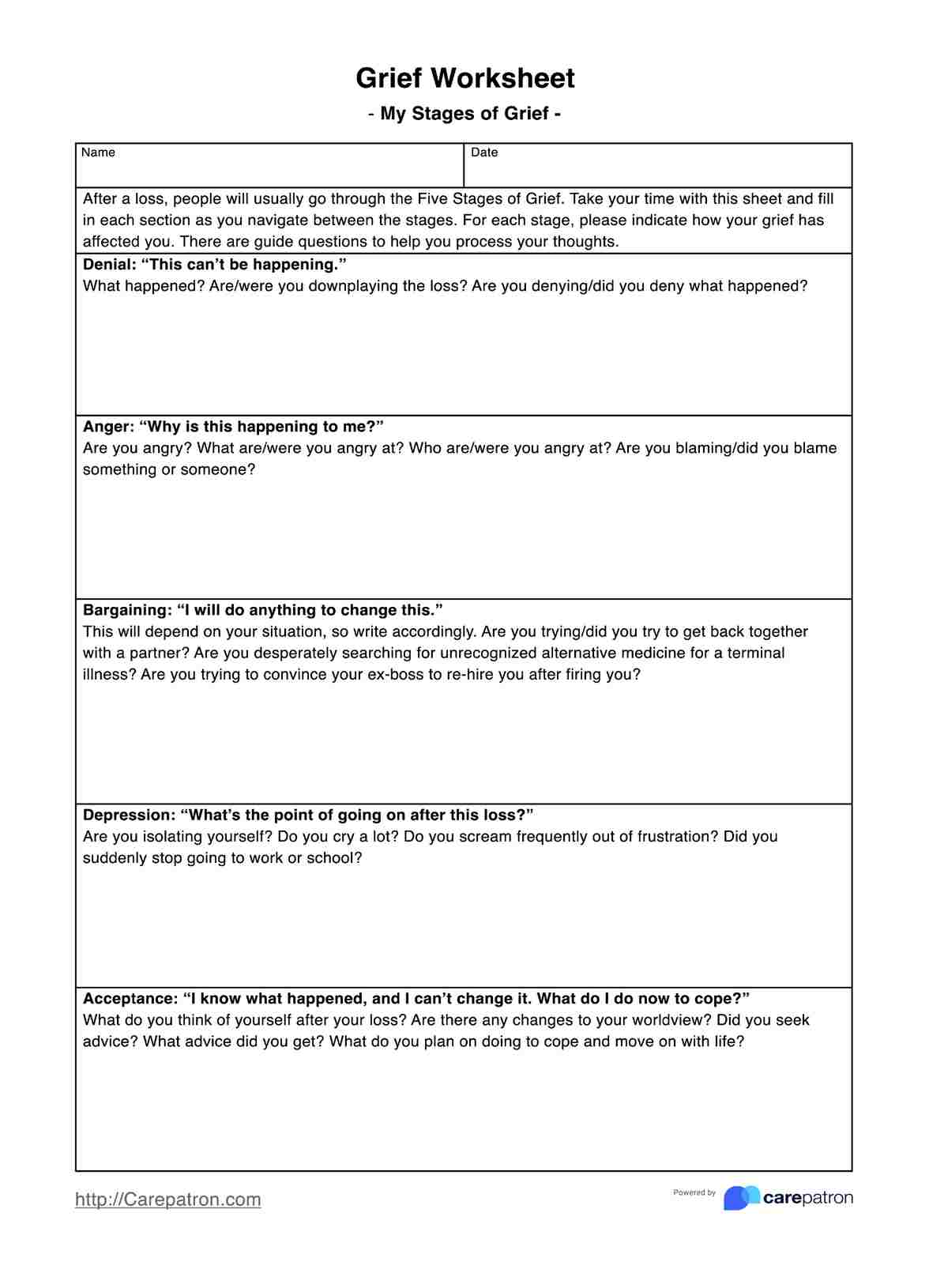A grief worksheet is something that grief counselors may issue to patients in order to help them go through their grieving process. There are different kinds of grief worksheet examples, with this Stages of Grief being one of the most simple ones.

Grief Worksheets
Navigating a loss can be a difficult process, and it is a journey unique to every individual. To help your patient work through the stages of grief, download this printable grief worksheet!
Grief Worksheets Template
Commonly asked questions
The three C's of grief are coping, confronting, and coming to terms. Coping refers to the initial stage of managing the shock and emotional turmoil following the loss. Confronting involves acknowledging and accepting the reality of the loss, which can be challenging and emotional. Coming to Terms signifies the final stage, where the individual begins to find a new sense of normalcy and acceptance of the loss, often through emotional processing and finding new meaning in life.
Grief counselors use these in order to have their patients write how they are dealing with the loss they’ve experienced. This becomes an opportunity for the patients to reflect on what they’re going through at their own pace. This could create opportunities for the patient to determine what they need to do in order to cope, and for the grief counselor to provide suggestions to help aid the patient as they work through their grief.
EHR and practice management software
Get started for free
*No credit card required
Free
$0/usd
Unlimited clients
Telehealth
1GB of storage
Client portal text
Automated billing and online payments











